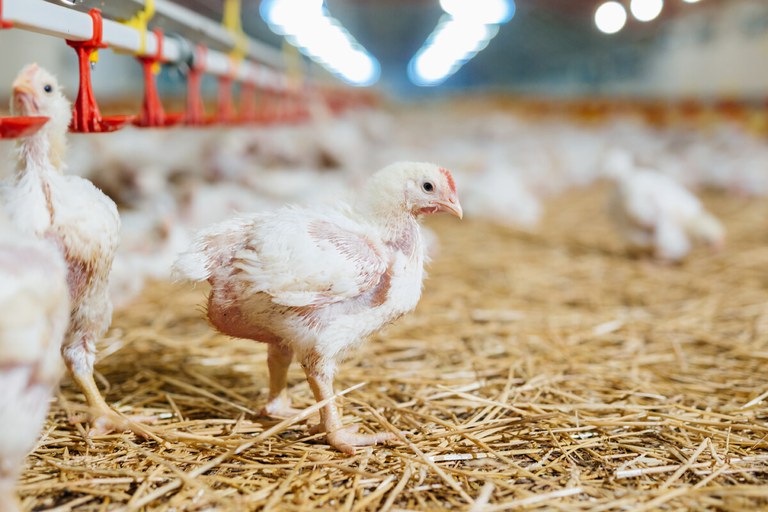Breeding novel corn lines to provide powerful antioxidants that help protect against intestinal disease.
Problem
Can crops be bred to provide safe and natural ways to improve animal health?
- With half of the chickens raised in the U.S. without antibiotics, amounting to nearly 4 billion chickens, there is a significant need for alternatives to treat illnesses such as necrotic enteritis, which afflicts mostly young broiler chickens and leads to massive economic losses.
Findings
Plant and animal scientists fed a novel, hybrid line of high-flavonoid corn (PennHFD) developed at Penn State to chickens with necrotic enteritis and compared the effects to chickens fed a diet based on commercially available corn.
- In this study, the birds fed a PennHFD-based diet had a 48 percent lower incidence of intestinal lesions, higher body weight gain, a better feed-conversion ratio, and a 23 percent lower mortality rate than the chicks fed on the control diet.
Impact
This discovery paves the way for future research to understand the dosage effect of PennHFD corn in chicken diets and better understand the anti- inflammatory and antibacterial properties of the corn's increased flavonoids in controlling the disease.
- This potential therapy could help to reduce the $6 billion loss in productivity and treatment or prevention costs every year worldwide due to necrotic enteritis.
Research Credit
Team
- Vinicius Buiatte, Dorian Dominguez, Tyler Lesko, Mark Jenkins, Surinder Chopra, Alberto Gino Lorenzoni
Participating Departments
Partners
- USDA Agricultural Research Service Animal Parasitic Diseases Laboratory
- Penn State Russell E. Larson Agricultural Research Center
- Penn State Poultry Education and Research Center
Other Funding
- Penn State College of Agricultural Sciences Motivating Innovation and Seeding Technologies Program
- Penn State College of Agricultural Sciences Research Applications for INnovation Program
Federal and State Appropriations
- USDA NIFA Hatch Project PEN04780, Accession # 7000699
- USDA NIFA Smith-Lever Project PEN08501
Emerging Discoveries
Published Research
Inclusion of high-flavonoid corn in the diet of broiler chickens as a potential approach for the control of necrotic enteritis.
-
Buiatte, V., Dominguez, D., Lesko, T., Jenkins, M., Chopra, S., & Lorenzoni, A. G. (2022). Inclusion of high-flavonoid corn in the diet of broiler chickens as a potential approach for the control of necrotic enteritis. Poultry science, 101(5), [101796]. https://doi.org/10.1016/j.psj.2022.101796
Office for Research and Graduate Education
Address
217 Agricultural Administration BuildingUniversity Park, PA 16802-2600
- Email agresearch@psu.edu
- Office 814-865-3136
Office for Research and Graduate Education
Address
217 Agricultural Administration BuildingUniversity Park, PA 16802-2600
- Email agresearch@psu.edu
- Office 814-865-3136



